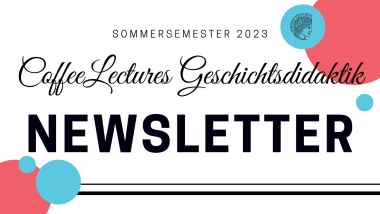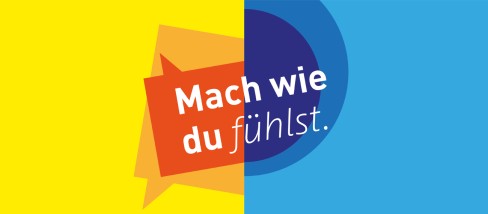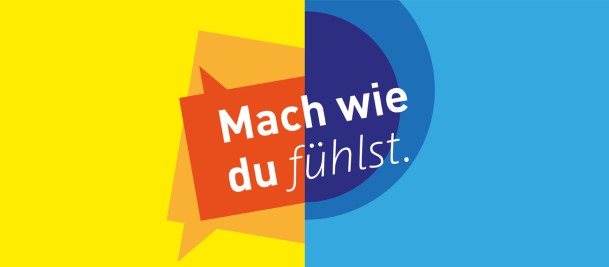-
![]() Bild: M. Grabarits
Bild: M. Grabarits![]() Bild: M. Grabarits
Bild: M. Grabarits1. Newsletter der Coffee Lectures Geschichtsdidaktik | Juni 2023
2023/06/30
Die Coffee Lectures Geschichtsdidaktik erfinden sich neu – im ersten Newsletter berichtet das Arbeitsgebiet über Neuigkeiten rund um Themen der Geschichtsdidaktik. Schauen Sie doch mal rein!
-
![]()
![]()
“The Life Story in Oral History Practice: A Two-Day International Symposium” to be held in the British Library, Fri 30 June 2023 and Sat 1 July 2023.
2023/06/30
HDSM upcoming panel at National Life Stories international symposium, British Library
-
HDSM – New Publikation: Scholarship of digital humanities development in honour of John Bradley
2023/06/23
Edited by Julianne Nyhan, Geoffrey Rockwell, Stéfan Sinclair, and Alexandra Ortolja-Baird
-
![]()
![]()
Sloane Lab Online Symposium Series: Koraljka Golub and Inna Kizhner
2023/06/17
Co-hosted by TU Darmstadt, University College London, the British Museum, the Natural History Museum, the University of Southampton, and the University of Portsmouth.
On 1st June 2023, Koraljka Golub, Professor, iInstitute, Linnaeus University, co-leader of LNU’s Digital Humanities Initiative, and programme coordinator for M.A. in Digital Humanities gave a lecture on the topic ‘Subject access in online information services for humanities: the case of LGBTQI fiction.‘ Inna Kizhner, Research Fellow, Digital Humanities Lab, Haifa University gave a lecture on the topic ‘Exploring epistemic bias in museum collections.‘
-
![]() Bild: Bubenzer
Bild: Bubenzer![]() Bild: Bubenzer
Bild: BubenzerAbschlussarbeit (BA / MA / MEd) im Rahmen eines Forschungsprojektes zu vergeben
2023/06/16
Die Arbeit leistet einen wichtigen Beitrag in der aktuellen Klima- und Wetterdebatte.
Das Fachgebiet Geschichte des Mittelalters der TU Darmstadt erforscht zusammen mit ihren Partnern das wechselhafte Zusammenleben von Mensch und Umwelt im Vorland der Bergstraße vom Frühmittelalter bis zum Beginn der Industrialisierung.
-
![]() Bild: Bubenzer
Bild: Bubenzer![]() Bild: Bubenzer
Bild: BubenzerStudentische Hilfskraft im Rahmen eines Forschungsprojektes gesucht
2023/06/16
Die Stelle ist zum 1. August 2023 zu besetzen.
Die studentische Hilfskraft wird als Unterstützung im DFG-Projekt „Die Flusslandschaft der Weschnitz und ihre Wechselwirkung mit dem Kloster Lorsch“ gesucht. Beschäftigungsorte sind die TU Darmstadt und das Versuchslabor Lauresham in Lorsch a.d. Bergstraße.
-
Digital lunch bei HDSM
2023/06/02
Start einer Vortragsreihe in Präsenz
-
![]() Picture: Free-Phtos/Pixabay
Picture: Free-Phtos/Pixabay![]() Picture: Free-Phtos/Pixabay
Picture: Free-Phtos/PixabayPocast: No Future – apocalypse looming?
2023/05/22
Prof. Dr. Gerrit Jasper Schenk in the SWR2-Forum
Climate collapse, a third world war, fear of blackouts, devaluation of money, or fear of the next killer virus….
-
![]()
![]()
Quellenband zur Umweltgeschichte erschienen
2023/05/19
Das Verhältnis von Mensch und Natur von der Antike bis in die Gegenwart
Die „Quellen für den Geschichtsunterricht“ behandeln Fragen zur Ressourcennutzung und zu Eingriffen in die Umwelt ebenso wie die Wahrnehmungen von Natur in unterschiedlichen historischen Epochen.
-
![Mach wie du fühlst]() Bild: Bild: hobit.de
Bild: Bild: hobit.de![Mach wie du fühlst]() Bild: Bild: hobit.de
Bild: Bild: hobit.deDas Institut für Geschichte auf der Hobit Contact 2023
2023/05/18
Am Donnerstag, 25.05.2023,9 bis 13 Uhr im Karo5, Stand Nr. 12
Auch in diesem Jahr präsentiert sich das Institut für Geschichte der TU Darmstadt im Karo5.
-
Forschungspreis der Stiftung für Personengeschichte 2024
2023/05/10
Das Institut für Personengeschichte in Bensheim an der Bergstraße schreibt alle zwei Jahre einen For- schungspreis aus.
Mit diesem Preis soll eine herausragende wissenschaftliche Arbeit aus dem Bereich der biographischen, prosopographischen oder genealogischen Forschung ausgezeichnet werden.
-
![]() Bild: R. Recalde/Unsplash
Bild: R. Recalde/Unsplash![]() Bild: R. Recalde/Unsplash
Bild: R. Recalde/Unsplash175 Jahre Paulskirche: Vortragsreihe in Darmstadt, Hessisches Staatsarchiv
2023/05/10
Vortragsreihe der Hessischen Staatskanzlei und des Hessischen Staatsarchivs Darmstadt
Am 18. Mai 1848 versammelten sich erstmals in der deutschen Geschichte die Abgeordneten eines Parlamentes aller damals im Deutschen Bund vereinten 39 Staaten in der Frankfurter Paulskirche, um über eine freiheitlich-demokratische Verfassung und die Bildung eines deutschen Nationalstaates zu beraten. Zu ihrem Präsidenten wählten sie den Südhessen Heinrich von Gagern. Ergebnis dieser Beratung war die knapp ein Jahr später in Kraft getretene Frankfurter Reichsverfassung.
-
![]() Picture: Physische Geographie, Universität Leipzig
Picture: Physische Geographie, Universität Leipzig![]() Picture: Physische Geographie, Universität Leipzig
Picture: Physische Geographie, Universität LeipzigStart of the DFG Priority Programme 2361 “On the Way to the Fluvial Anthroposphere”
2023/03/31
Kick-off-meeting took place in Leipzig, 9th to 10th March 2023
The DFG Priority Programme 2361 “On the Way to the Fluvial Anthroposphere” is based on the key hypothesis of a pre-modern emergence of a Fluvial Anthroposphere. All sub-projects of the Priority Programme investigate medieval and pre-industrial floodplains and fluvial societies in the Rhine, Danube and Elbe river systems and asks when and why humans became a significant controlling factor in floodplain formation. The Priority Programme is committed to multidisciplinary approaches from history, archaeology, and geosciences.
-
![]() Bild: Photo by Luca Tosoni on Unsplash
Bild: Photo by Luca Tosoni on Unsplash![]() Bild: Photo by Luca Tosoni on Unsplash
Bild: Photo by Luca Tosoni on UnsplashZusätzliches Lateinangebot über die RMU-Kooperation
2023/03/22
Das Institut für Klassische Philologie der Goethe-Universität Frankfurt bietet zwei Lateinkurse an, deren Besuch Ihnen auch im Rahmen Ihres Studiums Geschichte an der TU Darmstadt angerechnet wird.
Kurs zur Vorbereitung der Prüfung „Anspruchsvolle Lateinkenntnisse“ und Kurs für Mittellatein.
-
![]() Picture: Thomas Ott
Picture: Thomas Ott![]() Picture: Thomas Ott
Picture: Thomas OttBack in the castle / Residenschloss Darmstadt!
2023/03/20
The Institute of History moved in their new premises in the Residence Castle
Building S3|12 Residenzschloss 1 64283 Darmstadt
Institute of History
Archive
Archive






















